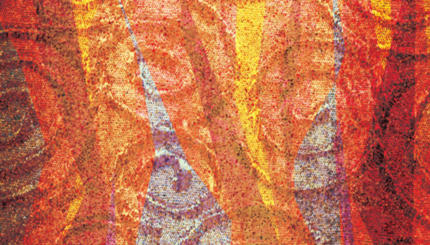Commentary on Parshat B’har, Leviticus 25:1-26:2
How can a person whose life is dedicated to perfecting the world take a day off? At the very heart of our ethical call as Jews comes the command for a Sabbatical — a period of time during which we do not attempt to effect change.
This obligation to take a sabbatical period is not limited to our actions every Shabbat. As our Torah portion this week, Parshat B’har, addresses, every seventh year the land itself is to observe a sabbatical year, which is tied to a cycle of 49 years. The 50th year, called the Jubilee, a shofar, or ram’s horn, is sounded, signaling that “amnesty is declared throughout the land” and all property holdings must return to their original owners.
READ: Sabbatical Year (Shemitah) and Jubilee
With your help, My Jewish Learning can provide endless opportunities for learning, connection and discovery.
While the Jewish tradition commands us to work to fix that which needs repair around us, the worldview of tikkun olam (repairing the world) is driven by the understanding that ultimately our possessions and even our very souls do not belong to us. As we say in the prayer Aleinu, our mission is “L’tah-kein olam b’malchut Shaddai: “to repair the world under the dominion of God.” The essential mechanism by which we come to see the world around us as God’s dominion is by taking a sabbatical from our own creative efforts, whether it be 24 hours in a week, or one year in seven.
In the laws of the sabbatical year, we see realized the concept of holiness in the three dimensions of human life — space, time, and personal behavior. The sabbatical is centered on the Land of Israel as a physical possession given over to the Jewish people for stewardship. We are told that this land “may not be sold beyond reclaim because the Land is God’s” and we are but strangers in residence here (Leviticus 25:23).
In addition to recognition of the holiness of the land, we are commanded to sanctify the years in which the Sabbaticals and Jubilees fall. The law of agricultural and economic release is not to be arbitrarily applied from time to time in order to give the fields a rest, or prevent those in dire straits from slipping too far into debt. Rather, the structure of the Sabbaticals brings holiness to the passing of the years.
As the Sabbath day is the axis upon which the week revolves, and the festival calendar brings meaning to the seasons of the year, the agricultural cycles frame a pattern of sacred years, culminating every half century with a clarion call for freedom for all the inhabitants of the land.
The third and deepest dimension of the sanctity of the sabbatical cycle is the responsibility of each person to do right by his or her neighbor. As the land lies fallow and untended, so too are all debts left uncollected. In the same echo of the shofar, blown to announce the return of property, is the release of those fellow Jews who have fallen into servitude.
The attention to the need of the downtrodden and vulnerable is not limited to curtailing the time they must serve or the debt they must pay. At every place where the Torah draws these limits, it includes a further exhortation that the poor and rootless ones among us be treated with the utmost dignity and humanity.
We are told that even as we rise to provide the means for a person to survive, we should not charge interest, but should instead allow the person to live by our side as if one of the family (Leviticus 25:35-7). If hard times bring a person to the point of becoming a servant, the master should not deal ruthlessly or treat the person as a slave (Leviticus 25:39-43).
The Torah even admonishes us against taking advantage of the very mechanisms that should provide justice. For example, one should not take advantage of a neighbor by selling land for a high price right before the Jubilee year in which the property will be returned to its ancestral owner (Leviticus 14-17). Even the seemingly prudent foresight that it is foolhardy to lend money to the poor when a year of releasing debts is coming soon, is called by the Torah “base and wicked,” and counter to the command to constantly open our hands to those in need (Deuteronomy 15:9).
In each of these cases the rationale is simple and authoritative — “I am the Lord your God.” God did not bring us out of Egypt either to be slaves to others or enslave others. God brought us out of Egypt to be servants to God.
In their context, each of these dimensions of sanctity focuses on the particulars of those living within the boundaries of the culture and land of Israel. The injunction against outright slavery is limited to the Hebrew and the resident alien. The return of property and release of debts is tied to the state of being settled in the Land. However, the ethical lesson at the heart of these Sabbatical laws, the recognition of the limit of our ownership of our property, our time and even our souls, runs through the very fabric of all God’s creation.
This framework that teaches us how to respect the holiness of the Sabbatical year can inspire us to other holy acts of release and declaring amnesty. Whether it be in supporting Jubilee 2000 (an effort to forgive the monumental debts that saddle poor countries and prevent their attaining liberty), or dedicating ourselves to the wise and respectful stewardship of our fragile environment, the lessons of Parshat B’har can help us fulfill our mission of perfecting the world in the name of God’s dominion.
The following article is reprinted with permission from SocialAction.com.
Torah
Pronunced: TORE-uh, Origin: Hebrew, the Five Books of Moses.


